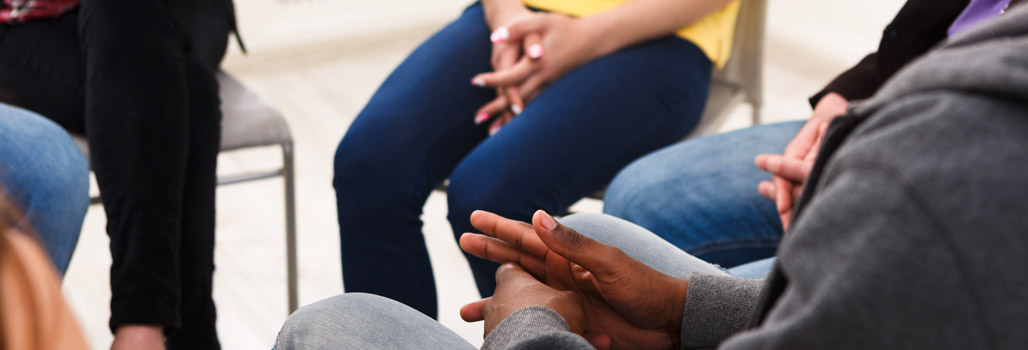Drug and alcohol addiction are hard to address when they affect you or someone you care about. Fortunately long term addiction recovery can be acquired if you make use of proven rehabilitation methods because addiction is a treatable disease.
We will detail how a sober future is achievable for you or a loved one if an integrated treatment approach is utilized.
What is Addiction Rehab (Rehabilitation)?
When we refer to addiction ‘rehab’, it includes therapeutic interventions and medical treatments required to tackle dependencies on substances such as prescription drugs and illegal drugs including heroin.
Rehab treatment is best when it is tailored to suit your unique lifestyle involving a medical detox, residential and outpatient programs, as well as relapse prevention techniques.

Facts & Statistics about Addiction in Kern
Prevalence of Substance Use Disorder, by Drug Type
(IN THOUSANDS)
- 2,7578.5%Any Substance
- 2,0886.4%Alcohol
- 1,0683.3%Ilicit Drugs
- 2060.6%Pain Medication
Drug- and Alcohol-Induced Deaths by Age Group, California, 2016
- Alcohol-Induced
- Drug-Induced
- 18 to 250.5
- 9.6
- 26 to 354.3
- 13.9
- 36 to 6424.2
- 22.9
- 65+23.7
- 9.4
Drug Use, by Selected Type and Age Group California, 2015 to 2016
- 12 to 17
- 18 to 25
- 26+
- Marijuana*13.2%
- 34.0%
- 13.5%
- Misuse of Pain Medications3.5%
- 8.0%
- 4.3%
- Cocaine0.8%
- 7.2%
- 1.8%
- Heroin0%
- 0.4%
- 0.2%
What are the treatment options available in Kern?
An integrated solution is generally the best way to address and recover from the underlying causes of substance use disorders and alcohol addiction. Through learning useful coping strategies you can heal from substance abuse while tackling the obvious symptoms of the disorder.

Private Residential Programs
Staying at a rehab center and obtaining all of your treatments there is called being in a residential rehab program. A primary benefit is that you will receive holistic support and treatment every day.
There is enormous value in taking yourself away from the home environment and becoming fully focused in the rehab program, because you are not vulnerable to the triggering environments that may cause you to use substances. You will be less susceptible to relapse if you complete your addiction treatment program in a secure facility where the environment is supportive.
When you struggle with an intense substance dependency, or if you suffer from a dual diagnosis or co-occurring disorder, a residential addiction treatment program is strongly recommended. Taking part in a residential rehab program is an effective way to get sober, and maintaining it requires continued focus because addiction recovery is hard during the early stages. When you have completed your residential treatment program you will want to be more independent and set goals for your new life.
Do You Need Help?
Our addiction advisers are here to help you.

Sober Living Programs
Sober living rehab programs are designed to help you to have more stability in your life, through guidance and a support structure. These programs comprise of:
- A house manager who checks up on you throughout the day
- Supporting you on acceptable ways to behave in recovery
- Encouraging necessary relationships with others in recovery who can relate to your experiences
Outpatient Programs
Outpatient rehab programs are usaully quite flexible by allowing you to have therapy at the rehab facility and continue your work or life obligations.
Outpatient programs usually offer:
- Education focusing on drug or alcohol use
- Talking therapy and counseling through the use of group interventions and individual sessions with a skilled addiction therapist. – Outpatient programs typically run from a few months to over a year, and your personal needs will determine how long you should attend treatment.
Detox Only Programs
By going through a medical detox you can remove alcohol or drugs from your body in a safe way and put an end to to physical dependence. During the detox phase you will go through withdrawal symptoms as the system stabilizes to work independently of the substance it was dependent on.
This marks the beginning of the rehab phase, which will continue as you challenge the root reasons for your addiction in order to avoid repeating the cycle long-term. It is normal to confront withdrawal and cravings for some time after the substance has been eliminated from your system. Learning important skills can assist you to minimize your chances of relapse as you work on your new life.
Paying for Private Treatment
If you wish to continue with private rehab, you will need to cover the costs or start a claim via your healthcare policy. Many insurance companies will allow you to claim at least some of the costs of treatment, including detox, a rehab program, and any on-going support services you may require. The amount of cover you can claim will differ depending on your policy and provider.
We recommend that you find out how much cover you are entitled to prior to enrolling in a program. Our Verify Your Insurance page can help you identify how much cover you will get.
If you choose not to claim against your insurance policy, you must pay for your rehab out of pocket. It may be possible to opt in to a payment plan if you cannot afford to pay the full amount straight away.
State Funded Programs
State-funded rehabilitation programs are designed for those who are battling with alcoholism or substance dependencies and who may not have the resources to pay for private rehab.
With the support provided with funds from state and federal resources as well as Medicaid, these programs may provide treatments such as:
- Medical assessment and detox if required
- Addiction counseling and ongoing support
State-funded rehab programs provide relief to individuals with little to no disposable income or private healthcare insurance. To qualify you will need to provide evidence about:
- Living arrangements
- Any income or earnings
- Evidence about your substance or alcohol addiction
- Living legally in the US
You can discover more about the application process here: https://www.grants.gov/
Follow this file to identify contact details of your state agency

The following state-funded addiction rehab programs are available in Los Angeles County:
Bakersfield Recovery Services DBA Jasons Retreat/Mens Residential
600 Bernard Street, Bakersfield, CA 93305
661-325-1817
https://bakersfieldrecoveryservices.com/Bakersfield Recovery Services Capistrano Community for Women
2000 Baker Street, Bakersfield, CA 93305
661-873-4927
https://bakersfieldrecoveryservices.com/Legacy Village LLC DBA Oregon Street Recovery Center
1620 Oregon Street, Bakersfield, CA 93305
661-846-2745
https://addictiontreatmentmagazine.com/
Maintaining Addiction Recovery in Kern
When you leave treatment, you may find it challenging. During your stay, you have been in a controlled and safe environment, supported by professionals. When you leave, you may encounter new challenges or triggers that test your coping skills in ways you may not have anticipated. Long term sobriety is more difficult to maintain when you have had a severe dependency and do not have social support when you leave rehab. Without the relevant support and aftercare to guide you in your new life, relapse is a real possibility.
The following AA/NA meetings are available in Kern:
AA - Kernville Book Study
In person and Closed: 1147 Kernville Rd., Kernville, CA 93238
Tuesday: 7:00 pm to 8:30 pm
https://kerncountyaa.wpcomstaging.com/AA - Sunrise Serenity
In person and Open: Unity Church, 1619 E St, Bakersfield, CA 93301
Tuesday: 7:00 am
https://kerncountyaa.wpcomstaging.com/Sun Morning Survivors
Open and Wheelchair: 3801 Buck Owens Blvd Suite 105, Bakersfield, CA 93308
Sunday: 10:00 AM
https://www.kcna.org/meetings.html
Aftercare & Alumni Programs
Aftercare programs extend your rehab program once you return to your daily life. Because no one can predict what could happen in life day-to-day, up to 60% of clients in recovery may relapse, this makes extended aftercare an important feature of long-term recovery.
Once you complete your rehab program, you will discuss the services most beneficial to you long-term, and a relapse prevention package will be implemented to help you sustain it. Individuals who complete their drug or alcohol treatment programs can join an alumni community program like ours, which provides you the chance to engage with staff and others in early recovery. You will be invited to attend special events, participate in various initiatives, build relationships, and receive advice from other ex-clients in recovery. You may also reciprocate in the program by supporting other people if you like.
Support Groups (Fellowship Meetings)
Through support group meetings you will enable a support structure that is helpful to your long-term sobriety. Some of the oldest and most used support groups are Alcoholics Anonymous and Narcotics Anonymous, which both utilize the 12-step model to support those in recovery via group meetings.
During support group meetings, other members share their experiences and learn from the experiences of others. Many individuals in recovery attend local meetings to assist them in the early and later stages of addiction recovery. Support groups provide them with vital tools to stay sober and allow them to take responsibility for their own journey in recovery.

Support for Families & Children Affected by Addiction

Addiction hurts those living in the family unit to some extent. The person with the addiction needs help, but other members of the family need assistance too.
Family support groups provide you with vital coping strategies for your own life and allow you to offer greater support to the individual who has the dependency.
Examples of Family and Child Support Groups are:
- Parents of Addicted Loved Ones
- SMART Recovery Family & Friends
- NAMI Family Support Groups
- Al-Anon
- Families Anonymous
- Alateen
- Nar-Anon









